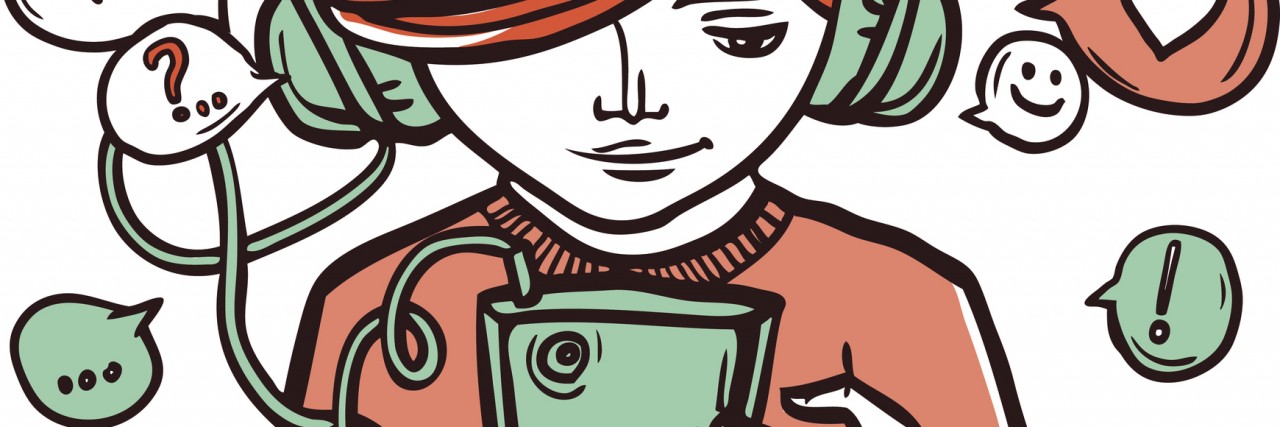I’m remarkably fortunate to have so many people in my life who have stood by me through the process of learning to live with depression and anxiety. My husband, friends and family are kind, honest, forgiving and patient with me, and have shown me love and understanding in so many ways; they are phenomenal examples of what it means to proactively care for someone with a mental illness. Here, I want to share some of the best ways they have done that.
1. They ask how I am –– in different ways, at different times — and they’re ready to listen. I have a lot of people in my life who approach this in various ways, depending on what they mean (are they just generally asking how I am, or do they want to know how I’m doing with my depression and treatment?). Since many of my symptoms are so physical, I have one friend who asks frequently, “How is your body feeling?” When I catch up with college friends, a couple of them ask straight out, “How have things been with your depression lately?” When they ask the questions in these ways, I know they’re indicating to me that I don’t have to worry about bumming them out, and they won’t hold it against me or think I’m a downer for being totally honest (“Actually, it’s been a rough week and I’m having a hard time getting out of the house.”) I don’t have to answer with, “I’m fine, how are you?” with them, and that’s pretty refreshing.
2. They understand when my plans change. This is both on a small scale (“Hey, I can’t do coffee today, I’m having a tough time.”) and on an enormous scale, like the time last fall when I was so depressed and anxious that I missed the wedding of two dear college friends. I can honestly report that in all cases, my rescheduling or canceling of plans — whether timely or last minute — has been met with love, graciousness and genuine concern (though I can imagine for many people living with depression or mental illness, this is not always the case). Sometimes friends have even gone an extra mile; when I cancelled a coffee date at the last minute, a friend left flowers and a prayer journal on my doorstep. This was so thoughtful: I knew she cared and wasn’t upset about our change in plans, and she made this known without pressuring me to answer the door or socialize, since I had already indicated that I wasn’t up to it.
3. They offer flexible outlets for social interaction I can choose to join if I’m up for it. When I missed the wedding last fall and ended up being home and not in Colorado for a weekend, my close friends texted that they were taking their toddler to a farm for pumpkin picking and fall festivities. My husband and I were welcome to show up or not — no pressure. I took a deep breath, pulled on some clothes and put myself up to it — and was cheered and comforted by their company. Most importantly, I know if I had decided not to make an appearance, that would have been OK, too.
4. They don’t take it personally. My closest friends and family members are able to accept the unpredictability of my illness without reading into it and assuming I’m avoiding them or that I can’t be bothered to make time for our relationship. They understand it’s not about them, and I am incredibly grateful for this. They know I’m doing the best I can, when I can, and the rest is all good. I don’t think any of them can begin to understand the relief I feel in knowing that.
I realize some of these responses require a flexibility and patience that does not come naturally to every person, and that realization makes it even more special to me that I have people in my life who are able to accommodate me for who and how I am at any given moment.
If someone you love suffers from depression and you’re feeling frustrated with their flakiness, absence or what seems to be a disengagement from your friendship, I’d urge you to consider taking a step back and finding out how they’re really doing. A conscious effort to help them feel supported regardless of what they can and can’t do will go a long way in helping them feel safe and loved.
Follow this journey on Go Where It Hurts.
The Mighty is asking the following: Create a list-style story of your choice in regards to disability, disease or mental illness. Check out our Submit a Story page for more about our submission guidelines.

